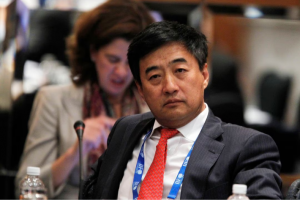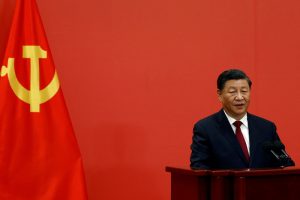The “common prosperity” dictum espoused by Chinese leader Xi Jinping has nothing to do with promoting equality or labour rights and all to do with cementing the Communist Party’s political control, a new paper argues.
The philosophy, first mentioned by Xi in 2020, is aimed at “centralising and strengthening the party’s economic control,” Chinese academic Xin Sun argues in a London School of Economics (LSE) research paper.
He said common prosperity is a device used by Xi to share power with other senior politicians. “Like other authoritarian leaders, Xi does not rule by himself,” Sun said.
“He needs a ruling coalition, a group of political elites whose support is essential for staying in power. He also needs to share power and spoils of office to maintain the loyalty of those political elites.”
Sun said common prosperity seeks to strengthen the party’s control over government finances and promote further centralisation in the fiscal system.
INSIGHTS: Explainer: How ‘Common Prosperity’ is Changing China
Expansion of Party Authority
It also supports the expansion of the party and central government’s authority “vis-à-vis that of the local government in a wide range of policy areas such as environment, housing, education, industrial policy, and public welfare and services,” Sun added.
However, Sun said Xi had no intention of building up China’s welfare system. “Xi explicitly warned against ‘slipping into the trap of welfarism that feeds the lazy’,” he pointed out in the strategic update paper for LSE IDEAS, the LSE’s foreign policy think tank.
Sun, senior lecturer in Chinese and East Asian business at the Lau China Institute, King’s College London, wrote in “Decoding China’s ‘Common Prosperity’ Drive” that the goal is “Chinese-style modernisation rather than the replication of Western-style welfare policies.”
Common prosperity and many related policies adopted under Xi’s leadership will have important implications for China’s economy and business, according to Sun.
“On the micro-level, the emerging regulatory regime dominated by central bureaucrats could bring about radical changes to China’s business environment.”
Stepping Up Regulations
Common prosperity also includes a systematic effort to step up regulations on private businesses, especially giant technology companies.
“The thrust of the effort is more about tightening political control rather than, as alleged by some, addressing socioeconomic problems such as worker welfare and the costs of healthcare and education,” said Sun.
Moreover, the additional burdens come from not a single but several central agencies that compete to expand their influence within the new regulatory regime.
“In other words, while in the past private companies often relied on the local government being the ‘dealmaker’ in business, they now find themselves having to deal with multiple central agencies as potential ‘dealbreakers’,” Sun said.
Common prosperity, he added, spells the end of power for China’s once-powerful provincial and municipal governments.
Weakening Local Incentive
“Tight central control is now imposed on what used to be powerful local governments in nearly all policy areas, weakening their incentive and capacity to promote economic development,” Sun wrote.
Xi laid out his common prosperity manifesto in an article published in Qiushi [‘Seeking the Truth’], the Party’s top political theory and ideology journal.
“The manifesto of the new policy agenda nevertheless offers no clear road map or explicit policy instructions,” Sun concluded.
“It also constantly wrestles with the tensions between development and equality and between rewarding capitalists and restraining their wealth. It is less clear where and how to achieve a balance.”
Sun noted that investors, politicians, and businesses have all been striving to understand what constitutes common prosperity, why the party and its leaders pursue it, and what implications it may have. “Xi’s own words do not provide a straightforward answer.”
- George Russell
READ MORE:
China Makes a Retreat From ‘Common Prosperity’ Policy – WSJ
China’s ‘Common Prosperity’ to Hit Tech Harder Than Property
China’s `Common Prosperity’ to Boost Middle-Class, UBS Says
























